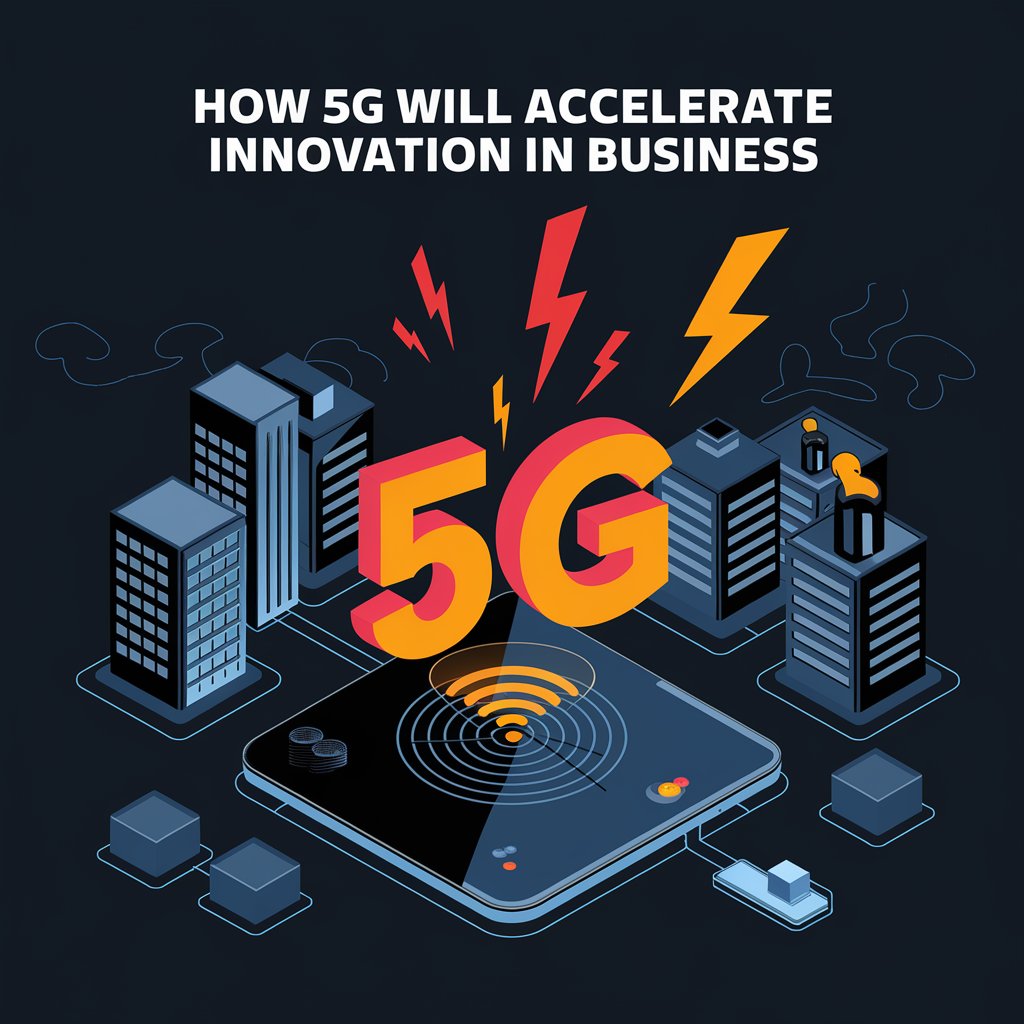The advent of 5G technology represents a transformative step forward for businesses globally. With its enhanced speed, reduced latency, and increased connectivity, 5G opens the door to new opportunities, fueling innovation across various sectors. Here’s how 5G is set to reshape industries and drive business growth:
1. Increased Speed and Efficiency
5G networks are designed to be up to 100 times faster than 4G, offering near-instantaneous downloads and the ability to transfer large volumes of data quickly. For businesses, this means enhanced operational efficiency, faster decision-making, and the ability to process massive amounts of data in real-time. Industries like media, entertainment, and finance will benefit from the improved speed for real-time data processing and content delivery.
2. Enhanced Connectivity for IoT (Internet of Things)
The Internet of Things (IoT) relies on constant connectivity, and 5G’s ability to handle millions of connected devices within a small area enables seamless communication among smart devices. This will accelerate the adoption of IoT in manufacturing (smart factories), healthcare (remote patient monitoring), and logistics (automated inventory management). Businesses will use IoT to optimize supply chains, reduce downtime, and improve customer experiences.
3. Low Latency for Real-Time Applications
5G reduces latency to mere milliseconds, enabling real-time interactions for technologies such as augmented reality (AR), virtual reality (VR), and autonomous vehicles. Businesses involved in training, customer service, product design, and remote work will benefit from more immersive, real-time experiences. This will also enhance sectors like gaming, education, and retail by delivering more interactive and engaging user experiences.
4. Remote Work and Collaboration
The COVID-19 pandemic has shown the importance of remote work, and 5G will make it even easier to collaborate remotely. High-definition video conferencing, real-time project collaboration, and cloud-based tools will become more seamless with 5G. For global businesses, this means reduced operational costs and greater flexibility, as employees can work efficiently from anywhere.
5. New Business Models and Opportunities
5G will also lead to the creation of entirely new business models. Industries like telecommunications, automotive, and healthcare are already experimenting with 5G-powered solutions. Autonomous driving, telemedicine, smart cities, and industrial automation will see massive growth with the rollout of 5G infrastructure. As businesses leverage 5G capabilities, we’ll see more innovation in services and products that rely on ultra-fast, reliable networks.
6. Improved Customer Experience
The faster speeds, higher bandwidth, and lower latency of 5G will allow businesses to offer enhanced customer experiences. Retailers, for example, can integrate AR into their e-commerce platforms, allowing customers to “try” products virtually before making a purchase. Businesses will also be able to provide more personalized services by using real-time data analytics, improving customer satisfaction and loyalty.
Frequently Asked Questions (FAQs)
1. What is 5G?
5G is the fifth generation of wireless technology, offering faster speeds, lower latency, and greater connectivity than previous generations (like 4G). It’s designed to support a massive number of connected devices and enable real-time communications.
2. How will 5G improve business operations?
5G will improve business operations by enabling faster data transfer, supporting IoT devices, and facilitating real-time communications. This will enhance efficiency, improve decision-making, and reduce operational costs.
3. Which industries will benefit the most from 5G?
Industries such as healthcare, manufacturing, automotive, telecommunications, entertainment, and retail are expected to benefit significantly from 5G due to its ability to support real-time applications, IoT connectivity, and faster communication.
4. What is latency, and why is it important?
Latency refers to the delay before data is transferred over a network. 5G’s ultra-low latency allows for real-time communication, which is essential for applications like autonomous vehicles, VR, and remote surgeries.
5. How does 5G support IoT?
5G supports IoT by offering higher bandwidth and the capacity to connect more devices simultaneously. This enables businesses to implement smart devices and systems, which can communicate and operate in real-time, improving efficiency and automation.
6. Will 5G replace traditional Wi-Fi?
While 5G offers many advantages over traditional Wi-Fi, it’s unlikely to replace it entirely. Wi-Fi will still be used for local area networks (LANs) and in environments where 5G coverage might be limited or unnecessary.
Conclusion
5G will act as a catalyst for business innovation, enabling companies to leverage new technologies and unlock unprecedented growth. Its impact will be felt across various sectors, from enhancing customer experiences to revolutionizing operational efficiency. As 5G becomes more widespread, businesses that invest in and adopt this technology will be better positioned to stay ahead of the curve, creating new opportunities for innovation, expansion, and long-term success.
